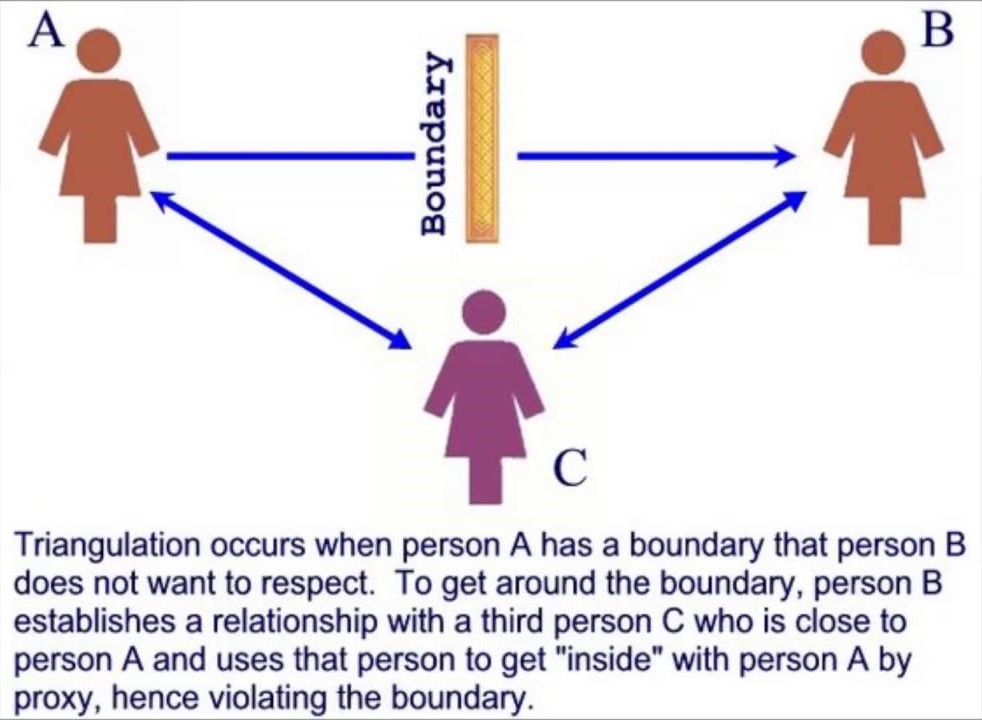November 2023

Several years ago, I had experiences with two different high-control religious groups, first leaving one and later the other, because of the control. The leaders of both groups exhibited high-control behaviors used by cults. I recently saw the following posted by someone still in one of these high-control groups.

The poster was referring to the first cult leader as displaying these red flags, but seemed completely unaware that the second one he was now following displayed all the same ones.
The second leader’s own words that he spoke to others show that he exhibits every one of these red flags:
- Exclusivity – this teaching is superior to all others.
I will teach what the others don’t. How to walk out the Torah [Old Testament] through Jesus’ teachings. - Don’t be involved with people who think differently from “us” / other people won’t be able to relate to you like we do.
We warned you about having contact with people outside our group and including us in their issues. - No one else can help/understand you the way I can.
I told you long ago that I loved you like a son I didn’t ever have. I loved you enough to stop asking you to come to our group. And because I loved you enough to ask your friend for his opinion to help me try and see what else I could do to help you, you get mad and cut me off just like you have done with everyone else. - Criticism of teachings/teacher is seen as a personal attack
[When a person left the group] I guess I see exactly how you feel about me, no different from anyone else on the street. - Extreme loyalty and admiration are an unspoken demand.
Is that how you show your love and appreciation for someone who loved you when NO ONE else did? You never learned how to honor someone who honored you when you weren’t honorable. - Concrete/absolute statements are made about the universe, as in “this is the way it is.”
Rebel against God all you want, there are plenty of examples in the Bible of people who chose your direction and your attitude. - Lavish attention from teacher can quickly shift to discarding if you are not compliant. [All the abusive words in these other eight red flags were stated when I or others declined to attend the leader’s “teachings.” Contrast them with how the leader spoke prior to this.]
I need your support on this. I value your views and opinions. I trust you and need you to be with me on this. - Other teachers, teachings or modalities are put down/discouraged
You shouldn’t listen to a psychologist. Are you trusting in man, or God? - Your teacher takes credit for your progress, awakening experiences, or anything else … as something they caused or did.
Who encouraged you in the Lord every time we talked? I cared for your spiritual walk and God showed me things you were doing and how it was going to hurt you seriously.
How can a person be so blind to warn others of these red flags while being oblivious to them himself? It is easier than you think. I have been there myself. There are several reasons why this can happen, all of them powerful and difficult to overcome.
Love Bombing
The leader lavishes attention and praise upon the group member. The member cannot conceive of the leader being anything other than a kind and caring person. This is a façade that the leader employs as long as the member is useful and obeys him. The leader is actually the exact opposite.
False Mirror
The group reflects back a false impression of themselves to people within it. Most members aspire to become better people, so they reflect that back upon themselves and create an echo chamber reinforcing it. This influences them to view the actions of the leader and the direction in which he guides the group as positive. After all, he’s only doing what he does to make us all better people. This false reflection makes people sincerely believe the leader is good, the group is good and their efforts are good.
Gaslighting
Group leader and his flying monkeys convince member of an alternate reality. This tactic is used against people who start having doubts or concerns. They are “lovingly” beaten down into believing that their accurate view of things is false, that they are the problem, and that they need to work harder to toe the line.
Guilting and Shaming
This one complements the gaslighting by making people feel ashamed, defective or even blasphemous for thinking something is wrong with the leader or group. Valid concerns are quickly shut down by redirecting the narrative to how ungrateful, selfish and sinful the person is for even questioning things. This puts the person on the defensive instead of being able to logically address the real issues. Extra points for having other group members dog pile onto the person.
Peer Pressure / Desire to Belong
Many members of the group obtain their identity from the group. Even more so because of the religion. If they leave the group, they lose their identity and have to start all over again. They may lose people they perceive as friends, although I would question the true friendship of someone trying to pressure you to remain in a toxic group.
Conclusion
Some people learn from the experiences of others. Other people have to experience something for themselves before they learn. Then there are people who never learn. Which one are you? I was the type who had to experience it for myself before I learned. It was painful, but I will not soon forget it. In my defense, there was no one around to teach me or show me how these toxic dynamics play out. I had to learn it all on my own. If you are reading this, now someone has shown you. It is up to you what you do with it. Will you open your eyes, or will you remain in darkness?
During several years of trying to separate fact from fiction in these two high-control religious groups, I enlisted the help of cult expert Dr. David McDermott. During one of our discussions he stated, “Why can’t you study the bible on your own and not rely on someone else to interpret it for you?” At the time, that registered as a non sequitur for me. I could not comprehend that there was a way other than attending the teachings of a religious leader. The piece I was missing, and later discovered, is that many of these religious leaders are phonies with little or no desire to teach accurately. They are in it for status, praise, admiration, control over others and sometimes money. So indeed, why not study on my own? I may run the risk of having less knowledge (although from what I have seen of many of these “pastors” and “teachers,” that is a very low risk), but at least I can be assured that my own pursuit of this knowledge is sincere and untainted by someone else’s hidden agendas.

















